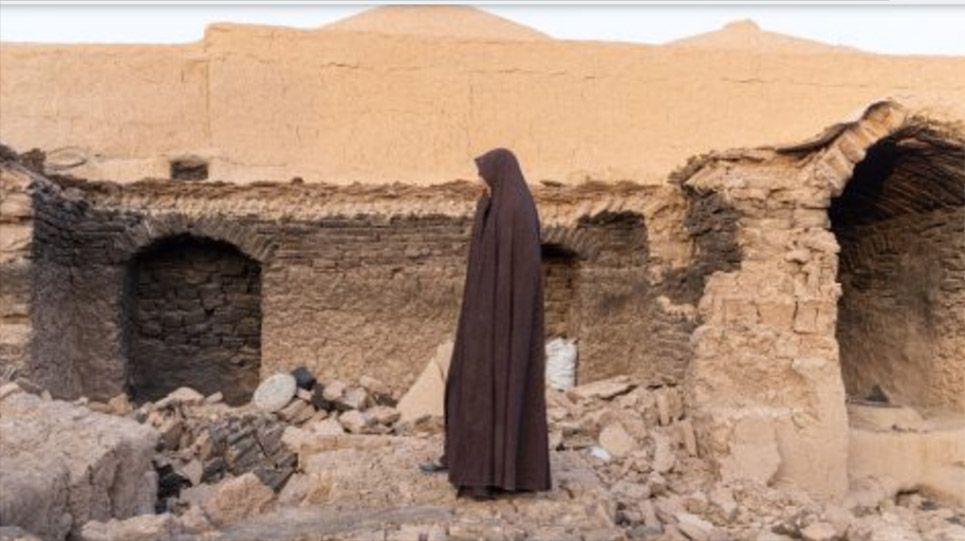
Afghan Women and Girls’ Rights Stifled in the Shadow of International Indifference
Smriti Singh
When the Taliban seized power in Afghanistan in 2021, it publicly promised a future where women would be active participants in society, free to study and work within a framework outlined by the group. In a world eager for positive change, the international community hoped that this time, perhaps, the regime would be different from its previous iteration.
Fast forward two and a half years and the reality facing Afghan women and girls is grim. As the Taliban have tightened their grip on Afghanistan, they have introduced over 50 decrees that directly curtail the rights of women and girls, weaving a tapestry of restrictions that binds women and girls in Afghanistan in a web of oppression. Women and girls are now banned from education beyond primary school. Women continue to face restrictions on their attire, access to public spaces, employment options, ability to seek public office or perform public roles, and their basic freedom of movement and expression.
In his last report, the U.N. Special Rapporteur on the Situation of Human Rights in Afghanistan Richard Bennett expressed concern about the rise in sexual and gender-based violence against women and girls, which rages on with impunity and minimal support for survivors. According to the report, since 2021, the unnatural deaths of over 280 women and children have been reported in the media, the causes ranging from intentional killings, conflict, and suicide bombs to domestic violence. But the actual figures are likely to be much higher as the deaths of women and girls routinely go unreported.
And it doesn’t end there. The Taliban have brutally crushed any attempt by Afghan women to reclaim their rights. Afghan women human rights defenders, activists, and peaceful protesters have been routinely harassed, arbitrarily arrested and detained, and tortured. Their families have been threatened with dire consequences if they continue to challenge the Taliban’s widespread and systematic discrimination and abuse against women and girls.
The Taliban have incrementally stripped away the rights of women and girls, emboldened each time by the lack of tangible response from the global community. As each encroachment on women’s rights goes unchecked, it further solidifies the Taliban’s oppressive regime. Yet the response from the global community has been muted, and with various conflicts now dominating the headlines, Afghanistan risks becoming a forgotten crisis.
Where do we go from here?
The obligations of states to protect the rights of women and girls under international law are unequivocal. The international community must recognize the perilous precedent set in Afghanistan of impunity and zero accountability for the systematic dismantling of women’s rights. It is imperative that the international community holds the Taliban accountable for their crimes and human rights violations and ensures justice for victims and survivors.
Human rights organizations and officials, including Amnesty International, the International Commission of Jurists, and the U.N. special rapporteur on the situation of human rights in Afghanistan have presented a compelling case that the widespread and systematic violations against women and girls amounts to the crime against humanity of gender persecution. This provides an opportunity for states to exercise universal jurisdiction over the Taliban leadership to investigate and prosecute suspected perpetrators. Another avenue is strengthening collaboration with the International Criminal Court and other courts to ensure they have the necessary resources to carry out effective ongoing and future investigations into crimes under international law, including war crimes and crimes against humanity such as gender persecution.
The global community must make clear that any negotiations or dialogue with the Taliban should not be mistaken for legitimization of their systematic violations of the rights of women and girls. Instead, the international community should reinforce its commitment to the Afghan people, and stress that as the de-facto authorities, the Taliban are responsible for fulfilling the obligations emanating from the international treaties to which Afghanistan is a party.
The international community, including the United Nations and all countries that have engaged with the Taliban, should proactively put women’s rights at the front and center of any diplomatic engagements with the Taliban. Empowering Afghan civil society, especially women-led initiatives, both in and outside Afghanistan, and supporting their efforts to design a governance model that respects human rights would be a powerful counterpoint to the silencing of women’s voices inside the country.
As the world marks International Women’s Day today, let it be more than a symbolic celebration. Let it serve as a call to action for the international community to reevaluate its commitment to protecting the rights of Afghan women and girls. Concrete steps, such as accountability and justice, increased female representation in negotiations, amplifying the voices of Afghan women, and supporting those who are no longer in Afghanistan, are imperative. The time for diplomatic rhetoric is over – now is the time for decisive and collective action to preserve the hard-won rights of Afghan women and girls. In failing to act decisively, the world risks witnessing the normalization of this remorseless dismantling of women’s rights in Afghanistan.
Published: March 08, 2024



